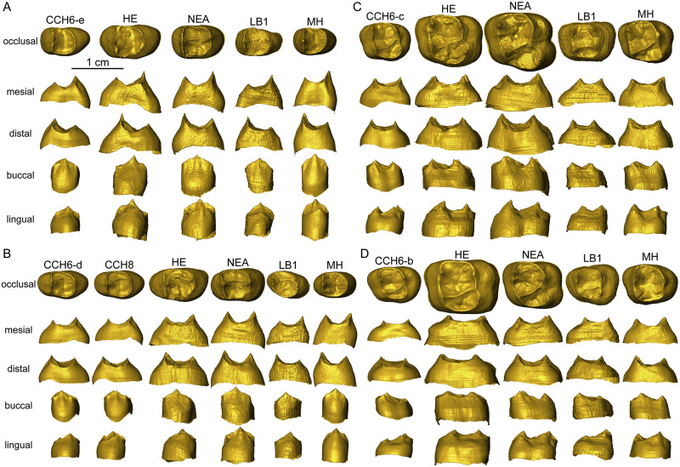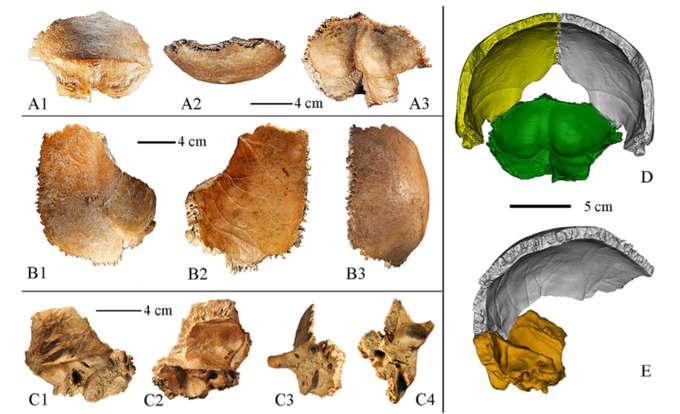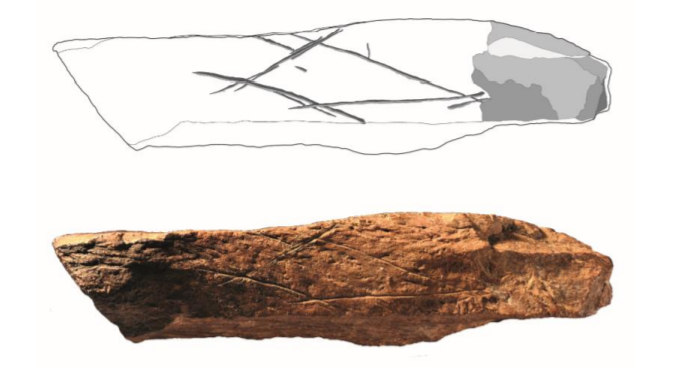Further analyses of the structural organization of Homo luzonensis teeth:
· external crown aligns more with H erectus than with H habilis/H rudolfensis
· internal organization: more affinities with H erectus and H floresiensis than with Neand and mod.human https://t.co/4BnliEq9tU
Importantes innovaciones hace >70 ka en el abrigo sudafricano Diepkloof: romboide grabado sobre el hueso de un ungulado, calentamiento de roca para facilitar su descamado y la producción de bladelets y piezas bifaciales, y uso de adhesivos: https://t.co/msagRc95ND
El reestudio del cráneo de Hualongdong (SE China, 275-313 ka), subraya la modernidad de su cara: se interpreta como cercano a formas tempranas de humanos modernos, transición hacia morfología moderna hace 300 ka, 80-100 ka antes de lo que se suponía allí https://t.co/yAJNVLXrxs
Evolution of cranial capacity revisited. Xujiayao 6 cranium (∼200–160 ka) provides the earliest evidence of a brain size (∼1700 cc) that falls in the upper range of Neanderthals and modern Homo sapiens. https://t.co/L0NZH3jDMN
Interesante estudio de los dos cráneos de Homo erectus adultos más pequeños conocidos de sus respectivos periodos de tiempo en África: DAN5 (1,55 Ma) y BSN12 (1,26 Ma) https://t.co/PBSBWqGzap vía @CENIEH
A climatic evaluation of the southern dispersal route: dispersal models of H. sapiens along the "southern-route" into Arabia https://t.co/vX7SvE7cQV
Más evidencias de que los neandertales tenían dieta variada, aunque con particularidades locales.
Dietary evidence from Central Asian Neanderthals: similar subsistence patterns to those elsewhere in their range - plants + large- & medium-sized ungulates https://t.co/TSEQna3KqZ
"The 3 m deep, well-dated, Panga ya Saidi sequence in eastern Kenya, encompassing 19 layers covering a time span of 78 kyr beginning in late MIS 5, is the only known African site recording the interplay between cultural and ecological diversity in a coastal forested environment" https://t.co/kZ5LnW9ZmD
Paper: Landscape modification by Last Interglacial Neanderthals https://t.co/bUvFQUCciD
Summary: Neandertals were the first hominids to turn forest into grassland 125,000 years ago https://t.co/0UAa2TTqS7
Innovative behaviors in a MIS5 layer from Diepkloof Rock Shelter (South Africa): the engraving of geometric forms, the heat-treatment of silcrete, the production of bladelets, the manufacture of bifacial pieces and the use of adhesive: https://t.co/msagRc95ND













